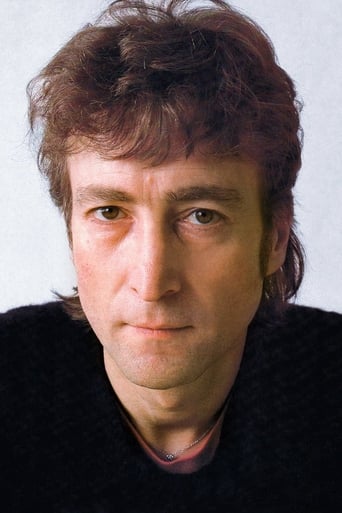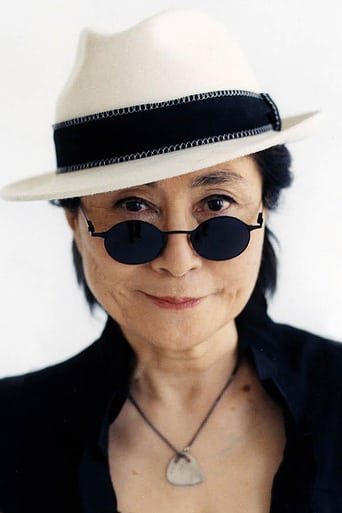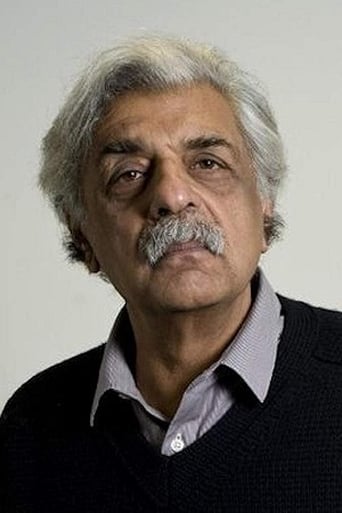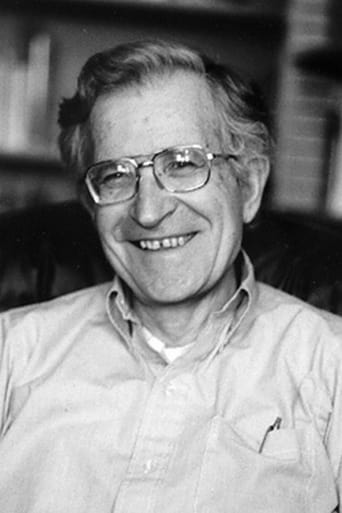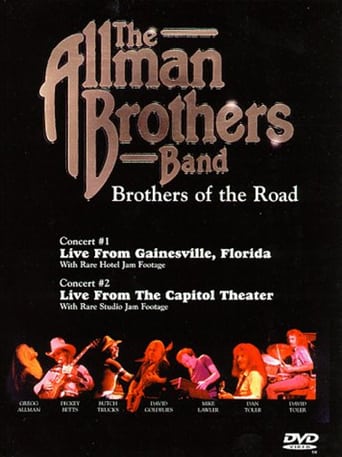Ameriatch
One of the best films i have seen
Softwing
Most undeservingly overhyped movie of all time??
Breakinger
A Brilliant Conflict
Brendon Jones
It’s fine. It's literally the definition of a fine movie. You’ve seen it before, you know every beat and outcome before the characters even do. Only question is how much escapism you’re looking for.
moonbus69
I cannot thank the directors/producers of this film enough. Using much classic film and TV footage (some possibly never seen widely before), interviews both old and new, with his music expertly mixed in, this movie is a 'must see' for even casual John Lennon and Beatles fans. It is also an intimate look at John and Yoko as a couple and of their projects together.This is a very heart-felt and well thought out memorial, and an inspiration for anyone working toward a more sane and peaceful reality/world. The film and extras should be required viewing in high school or college history, social studies, and ethics classes. Many viewpoints are presented from the wide variety of people interviewed for this documentary. Anyone wanting to understand the passion and magic of John Lennon, and the wild ride that was the USA from the late Sixties through early Seventies would find something very worthwhile in this moving film. A documentary that is definitely NOT boring, and one to watch often!
brainwave-2
For how revolutionary the subject matter is, there's little revolutionary about this bland doc (except maybe the cool graphics). Revelations about Nixon and Hoover's attempt to deport Lennon are very interesting and are heightened by his lawyer's appealing interviews, but that takes up only about a half hour of the film. The first 45 minutes is setting up ground work: who John was and what was going on at the time. While this would probably be appealing for a teenager, for those of us who lived through the era it's pretty simple stuff. Once everything is wrapped up pretty nicely the last 20 minutes are spent on his death, without fully describing the details of it. The teenagers who were educated by the first forty minutes are then left feeling that his death had some connection to the persecutions he received in his life – I assume this is done to intensify their argument. When in reality, the tragedy of his death was exactly that it was for no reason at all. Just like in the 60s and 70s, Lennon is still being used as a puppet.
dunmore_ego
David Leaf's and John Scheinfeld's *The U.S. vs. John Lennon* is an insular little diversion, showcasing Lennon's post-Beatles period when his activist voice made the United States government tremble in its widdle booties.Taking a stand against the Viet Nam War (back in the day when "peacenik" was not a four-letter word), allying with activists Abbie Hoffman, Jerry Rubin, Black Panther Bobby Seale, Lennon's "radical" political leanings eventually got him noticed by J. Edgar Hoover's Gestapo (erroneously called the FBI).In their quest to silence any who disagree with them, the fascist Nixon administration dogged Lennon until Strom Thurmond (then only 179 years old and looking not a day over Nosferatu) figured a way to silence Lennon without resorting to government-sanctioned murder (unlike their usual way of dealing with dissenters) – deport him back to merry old Liverpool.The Immigration bureaucracy then smeared all over John and wife Yoko, who battled until they actually won in October 1975.Someone comments that it's hard to believe this pop star could have stirred up the government in such a manner; the fact that the FBI involved itself at all in surveilling Lennon illustrates the petulance, paranoia and panicky ignorance of what is supposedly the greatest superpower on Earth.Released in 2006, *The U.S. vs. John Lennon* has all the potential to be another stab through the heart of an administration struggling for credibility (the Bush fiasco), but never quite extricates itself from its own subject matter, ultimately about an activist who is dead (Lennon) and his dissent over a conflict that is over (Viet Nam), so misses the mark on compelling.My greatest quibble with the film is that it never strays from Lennon twisting the government's panties; it misses the opportunity to analogize the events of the early 70s with the repeated history of the early 2000s. The closest it comes to crossing historical boundaries is when Gore Vidal comments, "He was everything they hated. He represented Life, which was admirable, and Mr. Nixon and Mr. Bush represent death - and that is a bad thing." The overarching message Lennon promoted was simply PEACE. Why does or should ANYONE oppose him at all? The few opposing press opinionators and government lackeys who dogged him were not concerned with legitimate issues (execution of the message or advising him on protocol), they debated Lennon on the message itself. What is the *matter* with these people? (Well, we know what the matter is – the perpetuation of conflict for ulterior agenda - but that would take us more off topic than a Yoko Ono song.) The movie loses street cred by calling Abbie Hoffman and Jerry Rubin "Radical Activists" as opposed to other protesting voices who are termed simply "Activists." Isn't that The Man's point of view? What makes an activist "radical" anyway? Telling the Truth? Through a megaphone?! Speaking of peace in a time of war? – that's radical!Dictionary definition of radical is: "Favoring or effecting fundamental or revolutionary changes in current practices, conditions, or institutions" – but this movie uses "radical" to describe an affront to the government's criminal war policy. And there is no consistency. Paul Krassner is tagged a "radical journalist" (for hanging with Rubin and Hoffman and writing subversive newsletters, I guess), while Carl Bernstein (labeled merely a "journalist," of *All The President's Men* fame) helped bring down Nixon's Satanic White House! You tell me: what's more of a "fundamental, revolutionary change"? Meanwhile an ex-con and felon who planned the Watergate break-in - G. Gordon Liddy - instead of being labeled with either his prisoner number, his bitch name in jail, or even "criminal mastermind" is titled "Former Nixon Administration Official." If they can't get their labeling right, how do we take this movie seriously at all? From interviews with Ron Kovic (author, *Born on the Fourth of July*), to Geraldo Rivera (radical mustachio), Mario Cuomo (ex-Governor of New York) to legendary author Noam Chomsky and former presidential candidate George McGovern (to name but a few), the film tries to cover all angles, but neglects to impart major reasons for world events - we get no explanation of why the Viet Nam war is even happening; Nixon is suddenly ousted from the White House with no Watergate; Mark David Chapman (Lennon's killer) is not even mentioned by name. Lennon songs are strewn non-chronologically throughout the movie, mirroring the almost arbitrary, stream-of-consciousness events, like the bed-ins, the bag-ins and those oh-so-radical megaphone rallies - though it truly is stirring to hear *Power to the People* and *Give Peace a Chance* in the contexts for which they were written.Under *Imagine* the film hits another low point in cliché, giving us still-frame flashpoints in Viet Nam (the bloated dead in graves, the child soldier, the gun to the head of a prisoner – you know the manipulative mantra).Ironically, the North American Union (that underhanded pigdog Free Trade treaty between the Head Eggs of the three countries of Mexico, the United States and Canada) seems to be congruent with John's vision: "Imagine there's no countries / It isn't hard to do / Nothing to kill or die for / And no religion too" – but the brotherhood of man "sharing all the world" Lennon envisioned did not include *enslaving* the population through a police state and radio frequency ID cards – which is what the Three Amigos are cultivating with their illegal disintegration of the borders.After all, the last lines of that verse are "Imagine all the people / Living life in peace..." Now THAT would be radical.
Apple Scruff
There is a lot that I love about John Lennon, and a lot that I don't like much about him. I was interested in this film initially, but was not all that impressed. I'll try to explain my problems with it. I suppose I should start by saying that it is not all bad, but anybody who looks at this as "the" documentary on Lennon is grossly misinformed.In a nutshell, nearly everything in the film had all been said before. It was the first time I felt like I was watching a remake of a documentary! Some people claimed that it was the first time this part of Lennon's life was shown in a documentary, but there was absolutely nothing in this film that hadn't been said elsewhere, be it on film or in a book.I hated the overused "talking-heads" format. I had no need to hear what Gore Vidal had to say, particularly when he went on about Lennon representing "life" and Nixon and George Bush representing "death". Whatever. I'm not their biggest fan either, but that was pure sensationalism. It's not clear which Bush he was talking about, but Vidal takes every chance he gets to make pompous, oversimplified statements like that.Geraldo Rivera? You've got to be kidding! I just wasn't always sure if the film had anything more to say than "John Lennon ruled and Richard Nixon sucked." Does anybody who is going to see this film really need to be told that to the degree that this film tells the audience? While I'm at it, I hated the film's ad campaign. It centered upon the above Vidal quote and counted on people who didn't do their own thinking to applaud it as wholly original and profound. The fact that it bastardized "War Is Over... If You Want It" by making it the film's tagline irritated me, especially since the film wasn't supposed to be about war! Even if you read into it and say that it was about a war between Nixon and Lennon, I still say that's a flimsy reason.David Leaf is usually much more impressive than this. I, for one, value his work as Brian Wilson's biographer. This film, however, just seemed to be capitalizing on the current documentary craze. It used to be that a viewer could be enlightened and educated by almost every documentary that made its way into cinemas. Not anymore, though. This one simply staples together other, BETTER documentaries about the same stuff. Want to learn about Lennon? Read a book. Watch better Lennon documentaries like Imagine: John Lennon. That film wasn't perfect either, but at least it showed John at his best and at his worst. The U.S. vs. John Lennon is simply John worship that spends so much time treating him like a legend, it forgets to treat him like a man.I probably would not have felt so negatively had I seen this one on television instead of in a cinema. It was partly produced by VH1, and that's really where it belongs. At least on VH1, it can be taken with a grain of salt alongside I Love the 80s: 1982 and Flava of Love. (Okay, okay, that last part was pretty low, I admit it. I apologize.) I can't say that I hated the whole thing. There were some pretty interesting interviews, particularly the one with John Sinclair. His contribution was the best part of the film. They also made at least some efforts (i.e. two or three I think) to bring in opposing viewpoints so they could say they were being objective.Above everything else, it is always a pleasure to listen to Lennon, even when he wasn't thinking much about what he said. Yes, friends, even Lennons make mistakes. Either way, his interviews were pretty well used in this film. I walked away really wishing that John were still around to state his case for himself retrospectively.

